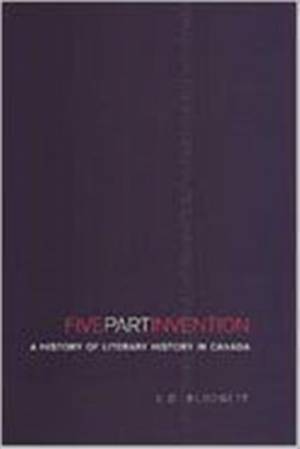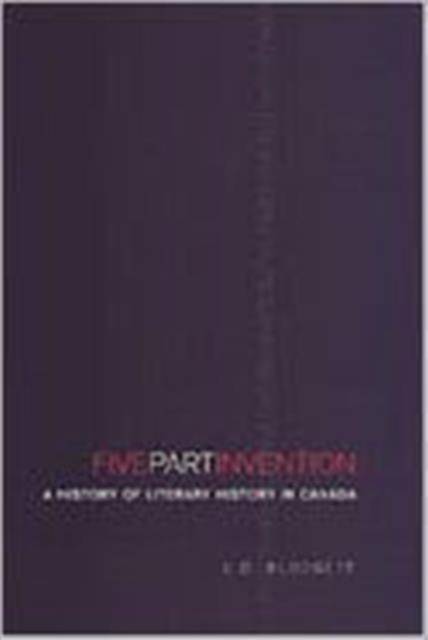
- Afhalen na 1 uur in een winkel met voorraad
- Gratis thuislevering in België vanaf € 30
- Ruim aanbod met 7 miljoen producten
- Afhalen na 1 uur in een winkel met voorraad
- Gratis thuislevering in België vanaf € 30
- Ruim aanbod met 7 miljoen producten
Omschrijving
The literary history of a nation is one of the main cornerstones of its national identity. As a result of Canada's diverse cultural history, however, its literary history is varied and, as E.D. Blodgett contends, is composed of five parts that work to create the whole. These parts include English Canada, French Canada, First Nations communities, Inuit communities, and immigrant communities. Using the critical writing on constructing nationhood, E.D. Blodgett suggests that Canadian literary histories can be used to address the problem of nation and to examine how each of the several 'national' groups that compose Canada develops unique narratives that demonstrate their different responses to the notion of nationhood and their sense of place within Canada's borders.
The first such history of its kind in Canada, Five-Part Invention offers a means of reading ethnic difference through cultural representations: the concentration on place and spatial configuration in English Canadian literature; the focus on time and history in French Canadian literature; the cultural trauma of the First Nations and Inuit literature; and the losses and ambiguous recoveries of ethnic minority writing. Blodgett concludes by addressing the roots of Canada's fragmented literary history and speculates on the reasons that this tradition continues today. Original, intelligent, and provocative, Five-Part Invention brings an entirely new perspective to the notion of literary history and will greatly influence the study of Canadian literature in the future.
Specificaties
Betrokkenen
- Auteur(s):
- Uitgeverij:
Inhoud
- Aantal bladzijden:
- 400
- Taal:
- Engels
Eigenschappen
- Productcode (EAN):
- 9780802038159
- Verschijningsdatum:
- 9/01/2005
- Uitvoering:
- Paperback
- Formaat:
- Trade paperback (VS)
- Afmetingen:
- 154 mm x 229 mm
- Gewicht:
- 566 g

Alleen bij Standaard Boekhandel
Beoordelingen
We publiceren alleen reviews die voldoen aan de voorwaarden voor reviews. Bekijk onze voorwaarden voor reviews.











